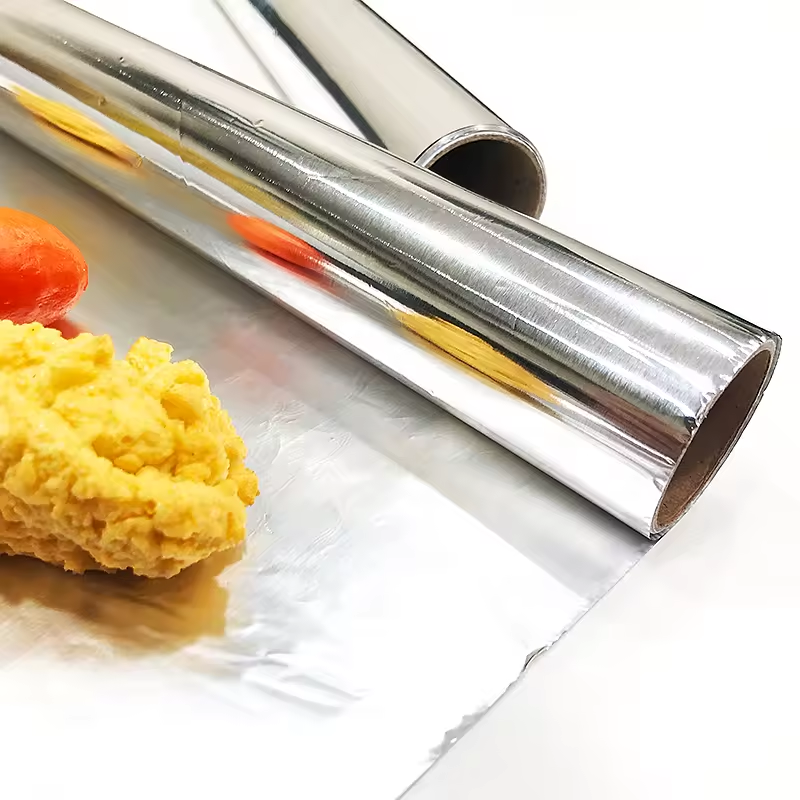Introduction
Aluminum foil is a staple in kitchens worldwide, prized for its versatility in cooking and food preservation. But what happens if you accidentally consume a piece? While alarming, this scenario is rarely life-threatening. As an SEO Operations Lead at a leading aluminum products company in China, I’ll provide professional, science-backed guidance on handling accidental aluminum foil ingestion and address common concerns.
Understanding Aluminum Foil Composition
Aluminum foil is made of 92–99% pure aluminum, rolled into thin sheets. It’s non-toxic, heat-resistant, and widely used in food packaging. The U.S. FDA recognizes aluminum as safe for food contact, though excessive long-term exposure may pose health risks.
Immediate Steps to Take After Ingesting Aluminum Foil
1. Stay Calm and Assess the Situation
Most swallowed aluminum foil fragments are small and pass harmlessly through the digestive tract. Panicking can worsen the situation.
2. Do NOT Induce Vomiting
Forcing vomiting may cause throat damage. Let your body process the foil naturally.
3. Drink Water or Eat Soft Foods
A glass of water or soft foods (e.g., bananas, bread) can help coat the digestive tract and ease passage.
4. Monitor Symptoms
Watch for rare but serious signs like:
When to Seek Medical Attention
While most cases resolve without intervention, consult a doctor immediately if:
-
The foil was sharp, large, or crumpled (risk of intestinal scratches).
-
Symptoms like vomiting, fever, or persistent pain arise.
-
A child or elderly person ingested the foil (higher complication risks).
Medical professionals may use X-rays or endoscopy to locate and remove the foil if necessary.
Myths vs. Facts: Debunking Aluminum Foil Concerns
❌ Myth: Aluminum foil causes poisoning.
✅ Fact: Minimal amounts pose no acute toxicity. The body excretes 95% of ingested aluminum efficiently.
❌ Myth: Foil reacts dangerously with stomach acid.
✅ Fact: Aluminum reacts mildly with gastric acid, forming harmless compounds like aluminum chloride.
❌ Myth: Swallowing foil leads to Alzheimer’s.
✅ Fact: No conclusive evidence links dietary aluminum to Alzheimer’s (WHO, 2021).
Preventing Accidental Ingestion: Best Practices
-
Avoid using foil to wrap sticky or moist foods (e.g., candies, cheese), which may cling to it.
-
Cut food away from foil before eating grilled/baked items.
-
Educate children about safe handling.
FAQs: Addressing Common Concerns
Q: Can aluminum foil dissolve in the stomach?
A: No, but stomach acid breaks it into smaller pieces for safe excretion.
Q: How long does it take to pass swallowed foil?
A: Typically 24–48 hours, similar to other non-digestible items.
Q: Is aluminum foil safe for cooking?
A: Yes, when used correctly. Avoid high-heat acidic dishes (e.g., tomato sauce) to minimize leaching.
Conclusion
Accidentally eating aluminum foil is unsettling but rarely dangerous. Stay calm, follow the steps above, and seek medical help if severe symptoms occur. As a trusted aluminum products manufacturer, we prioritize safety and education to empower consumers.









Share this page with your family and friends.